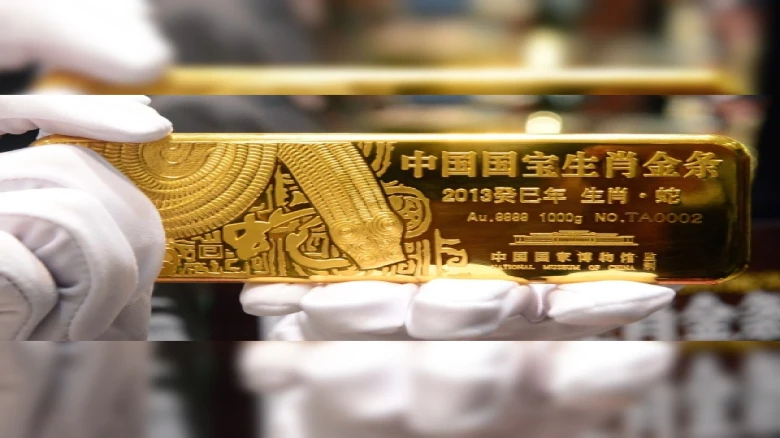Regional

China may hold far more gold than it officially reports, with several thousand tons potentially stored in a separate entity...
Digital Desk: China has been reducing its holdings of US Treasury bonds, with a $22.7 billion decrease in February, leaving its total at $775 billion. This decline is part of a broader trend, as China has sold off 40% of its US Treasury holdings over the past decade. The Chinese government is shifting away from US debt due to concerns about the weaponization of the US dollar, as seen in the freezing and potential confiscation of Russian Central Bank assets.
Instead, China is increasing its gold reserves, which now stand at 2,235 tons, just 100 tons behind Russia's reserves. This gold accumulation has been ongoing for 16 consecutive months, with over 300 tons added since October 2022.
Some analysts believe that China may hold far more gold than it officially reports, with several thousand tons potentially stored in a separate entity called the State Administration for Foreign Exchange (SAFE).
This shift from US Treasuries to gold reflects a broader pessimism about the future role of the US dollar among central banks, with six in ten central banks expressing optimism about gold's future role. China's gold-buying spree is driven by a desire to reduce its dependence on the US dollar, as the issuer of a reserve currency enjoys distinct financial advantages, such as the ability to ease or limit others' access to liquidity.
Despite these shifts, it is unlikely that China will replace a significant portion of its US dollar-denominated reserves with gold, as gold does not have an inherent rate of return. However, the continued accumulation of gold and reduction of US Treasury holdings reflect China's strategic positioning in the global financial system.
Do you (India) need to worry?
China's strategic shift away from the US dollar could signify a broader reorientation of global economic power dynamics. This could have implications for India's foreign policy and economic relations with both China and the US.
If China's move prompts other countries to follow suit, it could lead to a decline in the value of the US dollar. India, like many other countries, holds significant reserves in USD, and depreciation could affect its currency stability.
Increased demand for gold could drive up prices globally. India is one of the largest consumers of gold, both for investment and cultural reasons. Higher gold prices could impact India's current account deficit and inflation.
A weaker US dollar and higher gold prices could affect trade and investment flows between India, China, and the rest of the world, impacting India's export competitiveness and investment attractiveness.
Leave A Comment